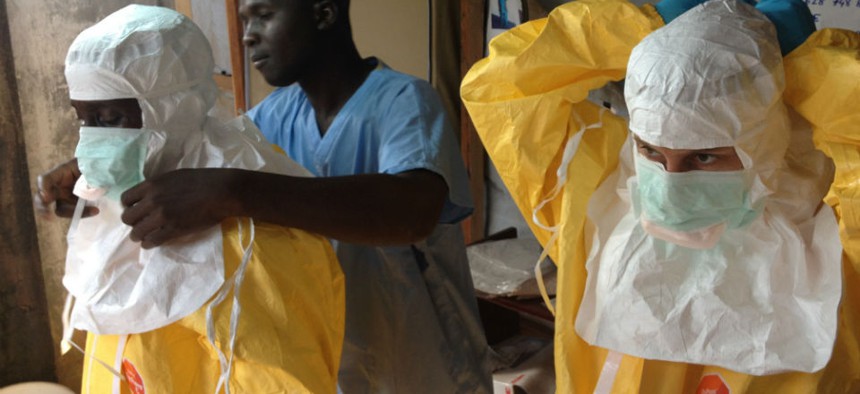
The deadly virus broke out in Guinea this spring. Flickr user European Commission DG ECHO
Two Americans Have Beaten Ebola, but We Don’t Know How
The two infected aid workers have been released from the hospital.
Two American aid workers who contracted Ebola in West Africa have been released from the hospital, and officials say they can return to their daily lives without fear of spreading the virus.
Kent Brantly and Nancy Writebol have both been released from Emory University Hospital, where they had been in isolation since the beginning of August. Brantly was released Thursday, and officials said they discharged Writebol earlier in the week.
Brantly and Writebol were the first two Ebola victims to enter the U.S., and some pundits feared that allowing them back into the country would put Americans at risk for an outbreak. But hospital officials said Brantly and Writebol tested negative for Ebola and pose no risk to others.
"The medical staff here at Emory is confident that the discharge ... poses no public health threat," said Bruce Ribner, the director of the infectious diseases unit at Emory. "It was the right decision to bring these patients back to Emory for their treatment."
The Ebola outbreak that sickened Brantly and Writebol is the worst on record. More than 1,300 people have died so far in West Africa—between 50 and 60 percent of all cases. Past outbreaks have killed as many as 90 percent of infected patients.
There is no cure for Ebola, and health officials aren't entirely sure what treatment or combination of treatments worked for the American patients. They received an experimental drug known as ZMapp, but because the drug has not been tested in humans, there are no guarantees it was responsible for their recovery.
ZMapp might have made the difference; or supporting treatments, including massive infusions of fluids, might have done the job on their own.
"They are the very first individuals to ever receive this agent. There is no prior experience with it. And frankly, we do not know whether it helped them, whether it made no difference or, theoretically, if it delayed their recovery," Ribner said at a news conference.






